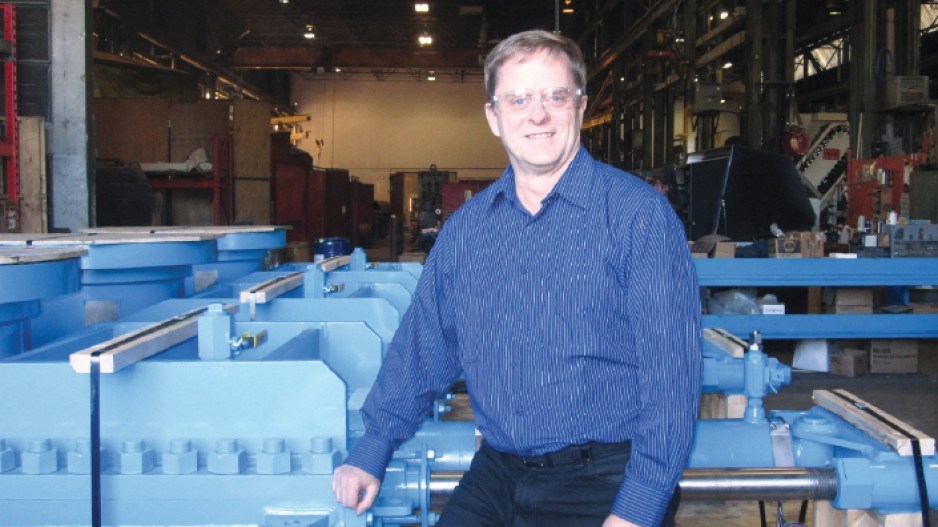Surrey manufacturers have warned that unless a host of growth-limiting issues are addressed, the industry could be riding off into the sunset.
Manufacturers are grappling with increasing tax burdens, including the return of provincial sales tax, elimination of the school board property tax credit for light industry, the carbon tax as well as increasing transportation and utility costs, said Dan Reader, president of Murray Latta Progressive Machine Inc.
The Surrey-based custom machinery manufacturer and steel fabrication company has 150 employees and 2012 revenue of approximately $25 million – both of which Reader said could rise given the right conditions.
The biggest challenge for the industry is finding skilled labour.
“Everyone knows it, we have a problem right now, and it’s only going to get worse,” he said. “Machinists, fabricators, fitters – it’s becoming a concern right across the board with the metal trades.”
Local manufacturers opened their doors earlier this month to showcase the industry and its economic impact and hoping to lure new recruits.
“At times you have to turn down work because you just don’t have the manpower, you can’t get the qualified manpower.”
Reader added that the government could make manufacturing a higher priority, not only with funding for training institutions, but also by creating awareness among students, from high school up.
“People still think manufacturing is a smokestack industry polluting the air. That’s a hundred years ago, that’s gone,” he said. “Manufacturing is all encompassing now; it’s modernizing through innovation and technology definitely.”
And to make it more modern and innovative, he said the industry needs government incentives and qualified employees.
The Surrey School District has been trying to address the problem through its accelerated credit enrolment in industry training (ACE-IT) programs.
The district launched a unique new full credit “trades exploration program” over the summer aimed at giving Grade 10 students the chance to experience the introductory and fundamental skills required in carpentry, electrical, plumbing and welding. The program has room for between 160 and 200 students, including the metal fabrication course run in a partnership with the British Columbia Institute of Technology.
“We typically fill all seats available each year for our ACE-IT programs,” said spokesman Doug Strachan.
Added Susan Chow, Surrey School District’s career education principal: “We continue to work with post-secondary partners, the industry community and the Surrey Board of Trade in creating and supporting awareness and opportunities at the school level in this regard such as the recent BC Manufacturing/Steel Day events.”
Retired Kwantlen Polytechnic University trades instructor Robert Finlayson, who now runs his Relative Design Ltd. specialty metal fabrication and welding business in Surrey, said the uncertainty around Industry Training Authority funding cuts did not help the situation.
He said the challenge is more of a skills gap.
“It’s that gap between the training where it takes a person from an entry level position into a more advanced position,” he said. “That is the biggest issue. It’s not that there’s a shortage of people or even applicants for a lot of the jobs, it’s just what industry needs tends to be the higher level, with five to 10 years experience. What we have is a disconnect between what we’re training for and what the jobs actually are.”




